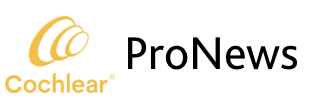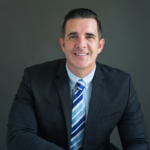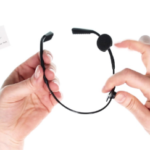Alison Vega, audiologist and Owner of Ascent Audiology & Hearing, discusses her 20 years of audiology experience and how her personal patient care has evolved in the current healthcare landscape.
What initially drew you to field of audiology and working with hearing implants?
I originally went to college to become a high school guidance counselor to help people find their path and reach their goals. When I began studying psychology at Western Washington University, I didn’t find my passion right away. So, I read Time Magazine’s “Top 10 professions of the next decade” and saw that audiology was #1 on the list (in 1995).
I knew nothing about audiology, but my family owned nursing homes and they contracted with speech language pathologists and audiologists to come in and work with patients. I enrolled in an Intro to Communication Disorders class the next semester and I was hooked! I finally felt like I found my niche and was encouraged by mentors to earn my AuD (even though I said that I would never go on for a doctorate). I was invited to attend Utah State University and I was one of three that graduated in their inaugural class!
I worked for an ENT group for seven years after graduation. During my time there I learned about the causes of hearing loss and treatment options, most of which they didn’t perform. I decided to open my multi-disciplinary private practice in 2011 and have achieved my goal offering treatment without limits. Adding cochlear implant services was always a dream. I talked to a rep at a conference one year who told me that I should consider adding cochlear implant services to my office. She told me about a Cochlear Provider Network of private practice audiologists that work with surgeons. I was so excited! I think I said yes before she even asked me if I wanted to join – I pretty much invited myself.
What Cochlear resources or services do you and your patients find most helpful during their cochlear implant journey?
I love using the aural rehabilitation program booklet that helps with sound identification. I think this is a wonderful resource! It gives patients tangible and easy-to-use lessons that are important at the beginning of the hearing journey. One of my patients uses it during a coffee date with her daughter every week – they go through a few lessons and her daughter helps identify sounds. It is really sweet.
How has the COVID pandemic changed the way you deliver care?
I have definitely changed the way that I work with patients, including phone call frequency. At first it was just to check in and to triage their level of need for a face-to-face appointment. Before COVID-19, I didn’t call patients because I didn’t have time and I couldn’t charge for it. Now, it is the only connection that I have with my patients. In a strange way, the physical distance has brought us emotionally closer because we are sharing this bizarre experience.
How will telehealth change the clinical care landscape?
I think our previous perceived barriers of telehealth, such as billing, are now broken with the recent changes in Medicare coverage. I think telehealth will be a staple of my business in the future. Telehealth allows for a more casual appointment, giving a feeling of friendship, like patients are allowing me into their home. I believe patients like it because it takes away the logistics of getting to the office and stress that they may have around making the appointment. They feel like I am going the extra mile to help them, when telehealth is actually easier for me too! When I am meeting with a patient, I am able to stay on task better and be more efficient.
How have you been leveraging social media to serve patients?
I really began to pay more attention to my social media channels this January. I still don’t know how to do much, but I am trying to create organic content weekly. My goal is that patients will use my Facebook page as a real-time way to see what’s going on at my clinic, such as, “We are closed today for the holiday…. Here is how you can reach us….. This is the plan…”
Any specific patient stories during the COVID crisis?
At the beginning of the crisis, I decided that we should call everyone in our database over the age of 80 to check in – not so much for appointments, but to see if they had a support system or to see if we could physically help them with anything. Thankfully, most patients were fine. I did call one patient and found out that he lives alone and his son lives in California. When I asked “Is there anything I can do for you? Anything at all?” He asked me “Can you bring me facial tissue?” Then he asked if I would bring him Almond Milk, because the food bank won’t bring him that. I was so touched that he needed these things from me that I agreed to all of them. So, I drove to his house and put his mail, the tissue and the milk on his front doorstep. I knocked on the door and told him that I was there and leaving the items. He yelled from inside “Thank you! Now go away!” It made me smile.
I also have gotten creative about how to serve patients in the parking lot for those desiring a physical visit amidst the shutdown, still following guidance. I kept my clinic open during the shutdown but I continued to see patients in the parking lot. Most patients needed hearing aid repairs or cleanings and some needed to order replacement devices. I had at least 6-10 patients a day! I found myself performing hearing aid programming with the devices in the patients’ ears, but while they were sitting in their cars. Sometimes to get physically closer to the patient I had to put my laptop on the hood the car so that I could make the programming adjustments and, with their window rolled down, I asked them if they liked the programming changes. It isn’t exactly best practice, but it got the job done and I have happy patients. Again, they see me going above and beyond standard services and it means so much to them. That’s really my goal.
Anything else to add?
Another project that I tackled during quarantine was a newsletter. I felt like if anyone was ever going to read mail, it was now. So, I snapped a selfie of myself and my kids, wrote a little blurb about focusing on all that is going right in the world and in our lives, added a crossword puzzle and a little healthcare snippet on telehealth options. The big wins here were that it helped me clean up my database and some patients sent ME thank you cards! We received a lot of mail back and we were able to figure out who had moved or what addresses we had wrong in the system. It was also like a lifeline to some of my older patients who don’t have a lot of family who send them letters. I am thinking about doing this quarterly.
For more information, subscribe to Cochlear ProNews.
About the author: Alison Vega, Au.D., is the owner of Ascent Audiology & Hearing. She specializes in the diagnosis and treatment of hearing loss. A native to the Northwest, Dr. Vega has over 20 years of experience in audiology. She earned her bachelor’s degree at Western Washington University and her doctorate in audiology (Au.D.) at Utah State University. Dr. Vega opened her private practice in 2011 so that she could bring a broader scope of comprehensive evaluations and innovative treatment options to the greater Olympia area.
Dr. Vega was named the Outstanding Young Professional in 2005 and she received the 40 under 40 award in 2013. She serves on the board for the Washington Center for the Performing Arts as well as the board of Hearing and Speech for the Department of Health. Dr. Vega is a member of the Academy of Doctors of Audiology, the American Academy of Audiology, the Washington Academy of Audiology, and the Washington Audiology Alliance.
This reflects the views of Dr. Vega.


